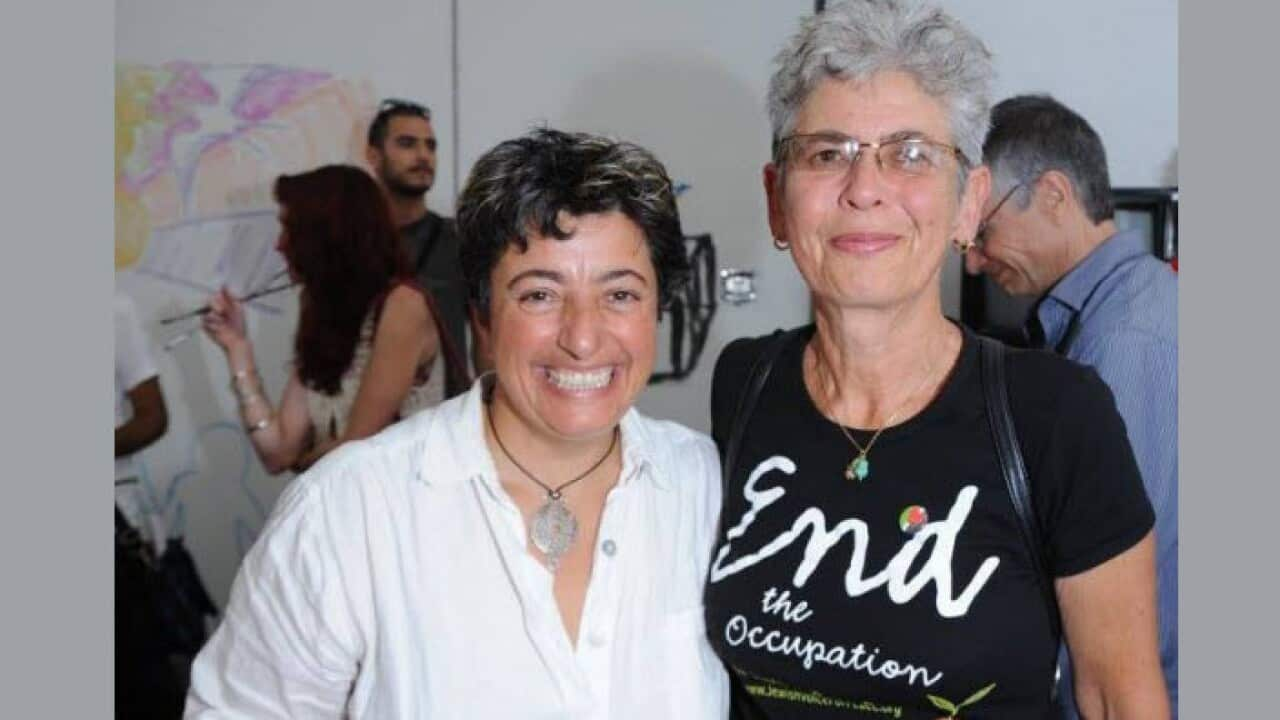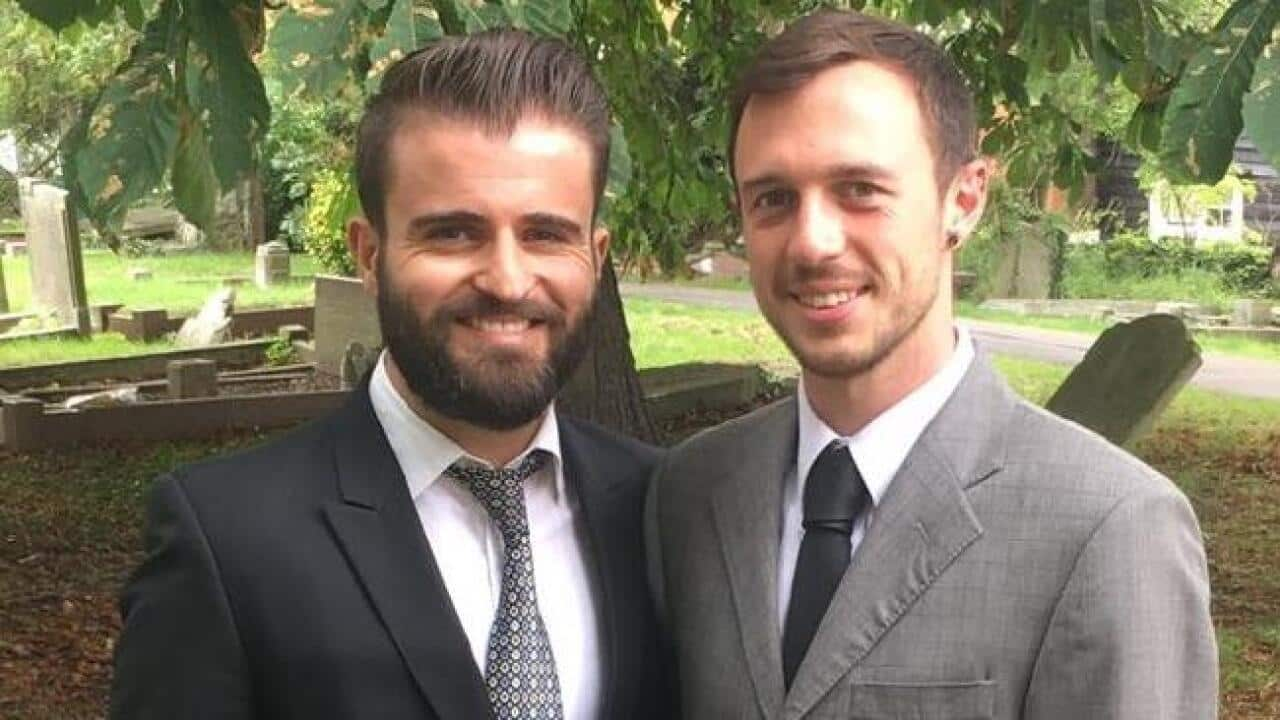Since the launch of the same-sex marriage survey on the 13th of September, the Muslim community has generally distanced itself from the public debate.
While many Christian groups have been vocal on the subject, many advocating for the 'No' campaign on religious grounds, there hasn't been a lot of talk on the subject from the Muslim perspective apart from a issued by the Australian National Imams Council, which called for "respectful and responsible dialogue" on the issue, while affirming that "Islam sanctifies marriage as only being between a man and a woman"
Not all Muslims however have the same stance on this subject.
Fahad Ali, who is an openly gay Muslim and founder of the Muslims for Marriage Equality argues not that same-sex marriage should be legalised within Islam, but says that it should have no impact on civil marriage in this country. Ali says Muslims have an obligation to make sure that people are treated equally within the law. Ali compared the Muslim leader’s take on this to Muslims' reactions against One Nation leader, Senator Pauline Hanson’s
Ali says Muslims have an obligation to make sure that people are treated equally within the law. Ali compared the Muslim leader’s take on this to Muslims' reactions against One Nation leader, Senator Pauline Hanson’s

Founder of Muslims for Marriage Equality group Fahad Ali Source: Fahad Ali Facebook
Related Article

Pauline Hanson enters the senate wearing a burqa
"We as Muslims, have an obligation to make sure that people are treated equally within the law."
“When Pauline Hanson says we’ve got to ban Halal, we’ve got to ban the hijab or the Burqa, we can’t go out and say this is incorrect, this is wrong, this is a violation of our rights, if we go out and do the same thing to other people based on our religion," he tells SBS Arabic 24.
"So it really has nothing to do with Islam, it’s about using the fact, that we as Muslims, have an obligation to make sure that people are treated equally within the law.” Fahad Ali isn’t the only Muslim supporting the “Yes” campaign.
Fahad Ali isn’t the only Muslim supporting the “Yes” campaign.

Fahad Ali and Bianca ElMir Source: SBS Arabic24
Bianca Almir, a Muslim marriage equality activist, also shares a similar opinion.
Ms Almir says that Muslims have to "negotiate" many different things every day, whether it is faith, culture or intergenerational issues.
"Sexuality is as important in us as spirituality, it makes us who we are."
"I feel like as Muslims in Australia we already have to contemplate what 'tradition' means, and sexuality is only one addition to that," she says.
Ms Almir adds, "sexuality in Islam is such an evil concept, everything is haram (sinful)."
"No one should feel like that because sexuality is as important in us as spirituality, it makes us who we are.
"It is okay - there is nothing wrong with that."
To Almir, being a Muslim means believing in God and his messenger prophet Muhammad.
"To be a Muslim, whatever you do outside of that is between you and Allah," she says. "And if you happen to be gay, that does not, make you not a Muslim."
Almir and Ali's views do not represent all of those in the community though.
SBS Arabic 24 also spoke to Sheikh Shady Alsuleiman of the Imam's council who issued the statement on Islam's position in regard to marriage. His position is clear.
His position is clear.

Sheikh Shady Alsuleiman Source: Sheikh Shady Alsuleiman Facebook
"We oppose same-sex marriage and consider it a sin and religiously illegal," says Alsuleiman.
"Our stand on the matter is in accordance with Islam’s clear and natural position."
Sheikh Alsuleiman says same-sex marriage will have a negative effect in Australia, especially on families and children. He says, "this is what everyone agrees to and not only Muslims."
“We see the damages caused by promoting same-sex Marriage and facilitating it and that’s our view from a religious and social stand."
"Islam promotes equality; however equality itself has its limits"
Although many might argue that Islam’s position on this cultivates inequality, Sheikh Al Suleiman says that "Islam promotes equality; however equality itself has its limits."
"There are limits to equality; there are limits to openness and limits to freedoms.
"This is a humanitarian and religious principle.
"Do we consider legalising same-sex marriage complies with open freedoms?
"We as Muslims don’t believe that and as Australians, we also don’t see it."
Living as a gay person in the Muslim community

Fahad Ali Source: Fahad Ali Facebook
He says he knew he was gay since he was 12-years-old.
When he decided to open up to his parents, many years later, he thought if he told them he was bisexual rather than homosexual, his parents might accept the idea more.
That proved to be wrong and after a lot of discussions, Ali’s parents asked him not to share this news with anyone.
However, Ali insisted on publicly letting the world know.
"If Allah did create me as a gay person why should I be ashamed to tell other people?" says Ali. "If other people have a criticism about Allah’s creation, that’s a poor reflection on them."
"That means that they don’t accept Allah, not me.”
"You are saving people’s lives by being public, I genuinely believe that."
Despite the difficulties that Ali faced, he still believes that gay Muslims need to come out.
He believes that for those who can come out, it will help other young gay Muslims feel more confident to do so as well. As it will give them someone to "look up to" and that can stop them from facing mental illness and even suicide.
“I really believe that people like me need to do something and need to be public," he says. "You are saving people’s lives by being public, I genuinely believe that.”
Related content

It is a basic human right Ibrahim says
According to an Arab psychologist, who chose to stay anonymous, families might sometimes engage in desperate methods to “help” their child.
She tells SBS Arabic 24, "I think sadly in their desperation to change their child, sometimes they engage in desperate methods and sometimes what I see is forced marriages, they are sent to the sheikh, there is exorcism, mental and physical violence."
"I truly believe that these reactions are due to fear and the lack of dialogue and the respect for discussion about sexuality in our community."
This is the same concept that Ali is trying to convey. "We need to be able to talk about sexuality, and the steps toward legalizing this means that we have those discussions," he says.
"I think by doing that at the end of the day, we become a stronger community."
Sheikh Alsuleiman, meanwhile says that legalising same-sex marriage will only "promote and facilitate" homosexuality.
“We don’t degrade anyone and we respect everyone.”
Sheikh Alsuleiman has invited Muslims to practice their Australian rights and respond "No" on the same-sex marriage survey.
He also emphasises the idea that whether it gets legalised or not, "we don’t degrade anyone and we respect everyone."
Nevertheless, that doesn’t mean that Islam agrees with these practices.
The results of the same-sex marriage postal survey will not be released until November 15, with November 7 being the final date for members of the public to return their vote, but regardless of the outcome, one thing is certain, not just in Muslim communities: the conversation has begun.










